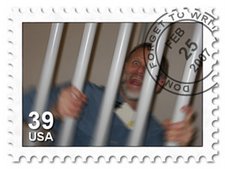Day 1212
Today Willy wants to dive into controversy. Many teachers and librarians do not feel students should use
wikis because they are "not authoritative" and that the information may not be accurate. Willy happens to think the accuracy is near-par with authoritative sources. What a wiki lacks in authority it makes up for in number of eyeballs of knowledgeable people who take ownership of the articles. But more
importantly,
accuracy does not matter!Willy is a dinosaur--a
pre-Internet librarian. Before the Internet, when a client approached him with an information need and neither of them knew much about the topic, the first stop was to the encyclopedia. Students would say that their teacher did not want them to use encyclopedias. Ever willing to corrupt young minds, Willy would tell the students to just not tell their teachers and don't cite from the encyclopedia. The reason for using the encyclopedia was not to get content for a paper but to learn enough about the subject to
focus their research to
locate the authoritative stuff that can be used for the paper. A twenty-minute investment with an encyclopedia could cut down hours of unfocused searching.
Wikis are just forms of encyclopedias. Most wiki articles are well written with overviews,
vocabulary, names, dates and bibliographies. But if a wiki article is not completely accurate, it does not matter--the article will almost always help to find good authoritative sources. As the authoritative sources are found any
mis-information in the wiki article will be corrected by the authoritative sources.
I once heard
research described as an
iterative process. You start with what you know, and do the best you can. As you find information, you learn and use that information to help focus further searching.
Wikis are a great place to start the research process,
not to end the process, but to start it.
On the list of wikis Willy was suppose to look at, the
Library Success: A Best Practices Wiki looked interesting. Willy thinks he may want to become a contributor.


